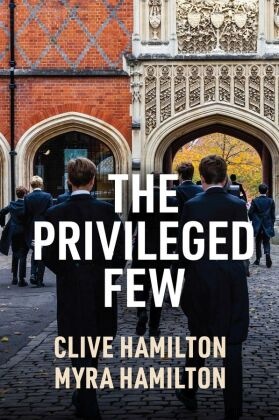| Verlag | Wiley & Sons |
| Auflage | 2024 |
| Seiten | 240 |
| Format | 19,0 x 2,0 x 22,8 cm |
| Gewicht | 360 g |
| Artikeltyp | Englisches Buch |
| EAN | 9781509559718 |
| Bestell-Nr | 50955971UA |
Male and white privilege are on the decline, yet elite privilege has gone from strength to strength. The privileges enjoyed by the rich and powerful are not only unfair but cause widespread harm, from the everyday slights and humiliations visited on those lower down the scale to the distortions in the labour market when elites use their networks to secure plum jobs, not least in new domains such as professional sports.
In this book, Clive Hamilton and Myra Hamilton show that elite privilege is not a mere by-product of wealth but an organising principle for society as a whole. They explore the practices and processes that sustain, legitimise and reproduce elite privilege and show how we are all implicated in the system, both facilitating it and tolerating its harmful effects.
Building on their original fieldwork and a wide range of other sources, the authors paint a vivid picture of the micropolitics of elite privilege, highlighting in particular the vital role play ed by exclusive private schools. Ranging across topics as diverse as 'glamour suburbs', philanthropy, Rhodes scholarships and super-yachts, The Privileged Few delves beneath attempts at concealment to expose how the elites keep getting away with it.
Inhaltsverzeichnis:
Introduction
1. Understanding elite privilege
2. The micropolitics of elite privilege
3. The geography of privilege
4. Replicating privilege: Elite schools
5. Sites of privilege
6. The power of giving
7. The privilege blender
8. Hiding and justifying privilege
9. Psychic harms
10. Economic and social harms
11. Contesting privilege
Rezension:
"A fascinating study of how elite privilege, networks and schools contribute to the fabric and perpetuation of social inequality. A must-read."
Thomas Piketty, EHESS, Paris
"This is an important contribution to academic literature and social commentary that is written in an accessible style but informed by analysis and evidence. It will appeal to both expert and general audiences in many countries."
Peter Saunders, University of New South Wales

